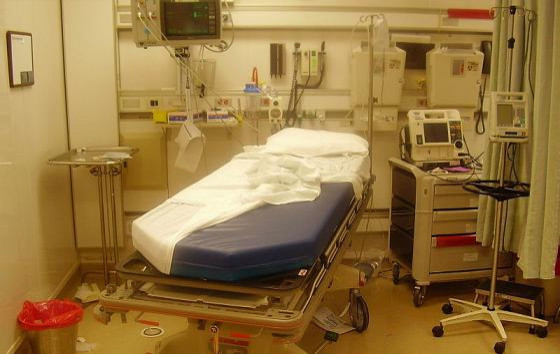Twins' Strokes At 26: Kathryn Tucker And Kimberly Tucker Suffer Strokes 9 Months Apart

A pair of 26-year-old Arizona twins suffered what EMTs described as the medical equivalent of “lightning striking twice” just months apart. Although doctors initially attributed both of their symptoms to other conditions, fraternal twins Kimberly and Kathryn Tucker have revealed that they suffered strokes within nine months of each other.
According to ABC News, both Kimberly and Kathryn Tucker narrowly avoided suffering further debilitating after-effects due to quick action. Kathryn, a senior care coordinator with an insurance company, was the first to experience a stroke. She told the publication that she was getting ready to go to sleep one night when she experienced a sharp pain on the back right side of her head. The next thing she knew, her vision had gone out.
"I slept for three days straight," she said. "Then, when I woke up, my vision was horrible. Everything was distorted and one-dimensional. I could barely get around."
Luckily for Tucker, her brother happened to be visiting and brought her to a hospital. But doctors there initially failed to recognize her symptoms as a stroke, mistakenly diagnosing her with a migraine with aura. It wasn’t until Tucker’s health continued to deteriorate that she underwent tests that proved what had really happened.
Her twin Kimberly had helped take care her after the stroke, so when she experienced the same symptoms on the left side of her body exactly nine months later after running a 5-kilometer race, she said she knew immediately that she was having a stroke. “I was feeling extra thirsty the whole time and went home to take a nap,” Kimberly said.
But when she woke up with a sharp pain in the back of her head and impaired vision, she immediately called an ambulance. "I instantly knew I had a stroke because I was suffering from many of the same symptoms as my sister," says Kimberly Tucker. "My vision closed in almost completely… I wasn't making a lot of sense and was not able to form complete thoughts. But I knew I was having a stroke."
"The EMTs told me that the chance of both me and my sister having a stroke this young was that of being struck by lightning twice,” she said. “They thought I was suffering from dehydration or heat stroke."
Doctors later found that both sisters had preexisting conditions that may have made them more susceptible to having a stroke. Kathryn was diagnosed with a patent foramen ovale, a small hole in her heart found in roughly one out of five Americans, according to the National Stroke Association.
“"There were several things that probably all together put Kathryn at risk,” Dr. Joni Clark, a vascular neurologist at Barrow Neurological Institute who treated Tucker, said. "Honestly, it's rare for us to actually evaluate two sisters who've had strokes within months of each other. If they had a family history, it would not be a surprise. It's quite uncommon."
Although Kimberly was not diagnosed with a PFO, doctors did discover that she suffers from arrhythmia. Both twins have since made health changes that included quitting smoking and taking birth control pills for Kathryn, and reducing their intake of caffeinated energy drinks for both.
"Don't think you are impervious to stroke," Kimberly said. "We think we are invincible until we are not. This taught us a huge lesson that we are not guaranteed great health and we need to take care of our bodies."
Although both sisters have recovered significantly with therapy, neither has regained full vision. "I still notice some weakness when I am tired," Kathryn said. "Otherwise, I am fine, physically back to normal."
"Don't think you are impervious to stroke," said Kimberly Tucker, who is still undergoing therapy. "We think we are invincible until we are not. This taught us a huge lesson that we are not guaranteed great health and we need to take care of our bodies."
© Copyright IBTimes 2025. All rights reserved.





















